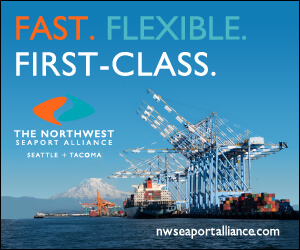|
By Amanda Hampton, Associate,
Nessle & Blakey
During the pandemic, the country experienced historic supply chain shortcomings that received national and worldwide attention. While the U.S. is not facing the same challenges anymore, there has been sustained interest in improving supply chains from both the freight industry and the federal government to prevent similar situations in the future.
Congress and the U.S. Department of Transportation (USDOT) have deployed various efforts over the past few years with a focus on improving supply chains. In 2022, USDOT launched the Freight Logistics Optimization Works information exchange to facilitate data sharing between industry partners. Additionally, the House Committee on Transportation and Infrastructure has conducted various hearings to examine supply chain challenges and identify remaining issues to address.
A highly anticipated effort to improve supply chains was included as a requirement in the Bipartisan Infrastructure Law (BIL), which was enacted in November 2021 and contained many provisions that are essential to the freight industry. In addition to providing funding increases for key USDOT grant programs with freight eligibility, such as the Nationally Significant Multimodal Freight and Highway Projects (INFRA) program and the Rebuilding American Infrastructure with Sustainability and Equity (RAISE) program, the BIL also directed the U.S. Department of Transportation (USDOT) to establish the Office of Multimodal Freight Infrastructure and Policy (Freight Office).
While the Federal Highway Administration has housed a freight office since 1999, its efforts are focused on improving the movement of goods via highways. The inclusion of the Freight Office in the BIL indicates that lawmakers recognize the need for a specialized focus on the unique nature of the freight system and its connection to the U.S. economy. Since freight movement is often multimodal, the Freight Office will bridge the gap between the siloed modal agencies at USDOT and serve as a specialized repository for the industry, which will be extremely important to stakeholders as they seek to benefit from the historic funding included in the BIL.
As mandated by the BIL, the Freight Office is tasked with carrying out the national multimodal freight policy; administering multimodal freight grant programs, including the INFRA, RAISE, and the National Infrastructure Project Assistance (Mega) programs; facilitating the exchange of information related to freight issues between the public and private sectors; conducting research to improve
|

multimodal freight mobility; assisting states and cities in developing supply chain expertise; and serving as liaison to ensure coordination with other federal agencies. The BIL requires the Freight Office to be led by an Assistant Secretary for Multimodal Freight, who is appointed by the president and confirmed by the Senate.
This November will mark two years since the enactment of the BIL. However, appointed leadership, a policymaking structure, and a formal organizational structure remain absent from the Freight Office. In addition, USDOT has not added a section to its website for the Freight Office that contains a description of the programs managed and made available by the office and the eligibility requirements for those programs, as directed by the BIL.
On August 30, the Freight Stakeholders Coalition – a long-standing group of associations representing shippers, transportation providers, and public and private owners and operators of infrastructure assets that move goods across the U.S. – sent a letter to USDOT Secretary Buttigieg urging the Department to move forward with fully establishing the Freight Office and designating leadership. Sixteen industry stakeholders signed on to the letter, including the U.S. Chamber of Commerce, the Coalition for America’s Gateways and Trade Corridors, Consumer Brands Association, and the American Association of State Highway and Transportation Officials.
The letter described the limited progress made with the Freight Office as “concerning as this office promises to play a crucial role in the development of long-term multimodal freight planning, as well as serve as a critical coordination point between the Departments of State, Commerce, Energy, and Homeland Security and other agencies with jurisdiction over supply chain policy.” The stakeholders further asserted that “without the necessary leadership in place, much of this interagency coordination is occurring on an ad-hoc basis, impacting the efficiency and decision-making in how these tasks are carried out.”
Nessle & Blakey, Ltd. is a public affairs and
communications consulting firm based in
Washington, DC.
|



